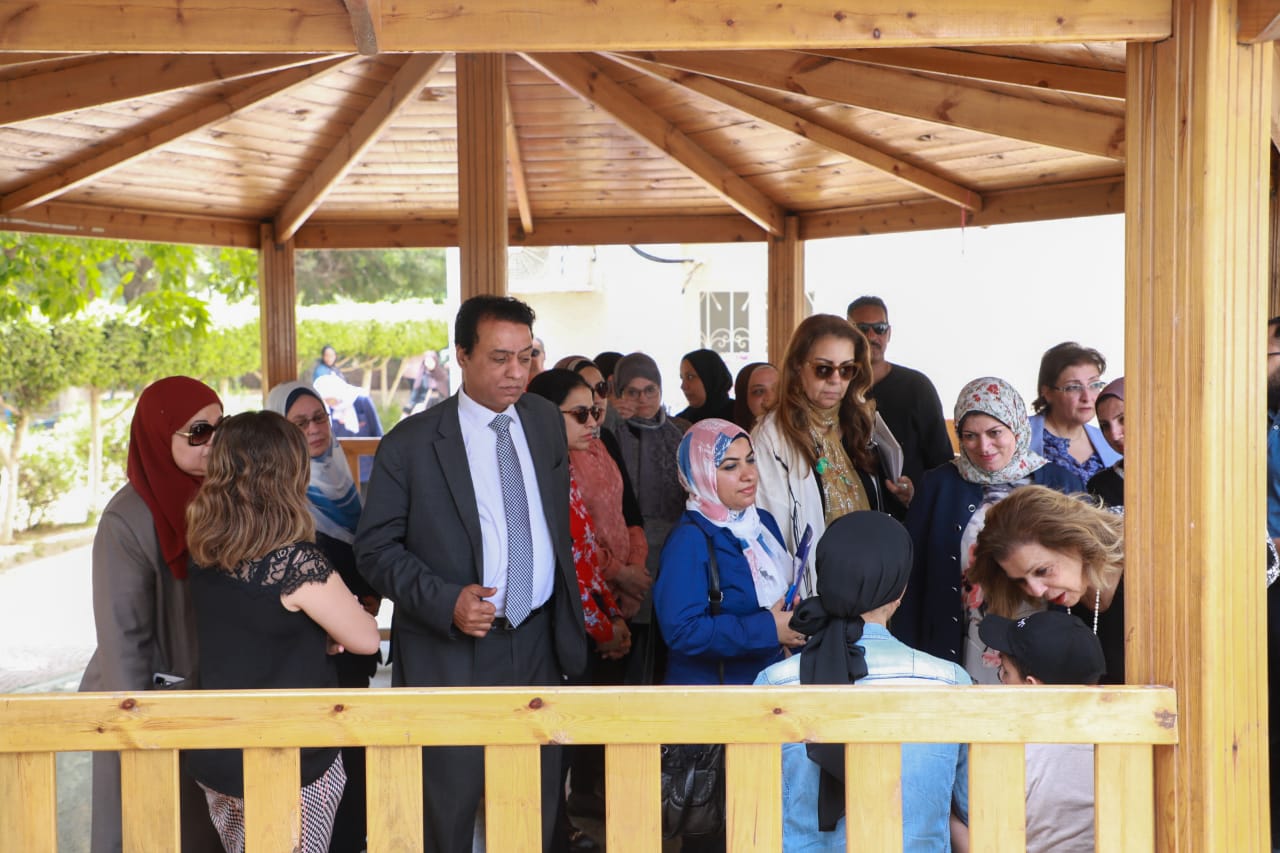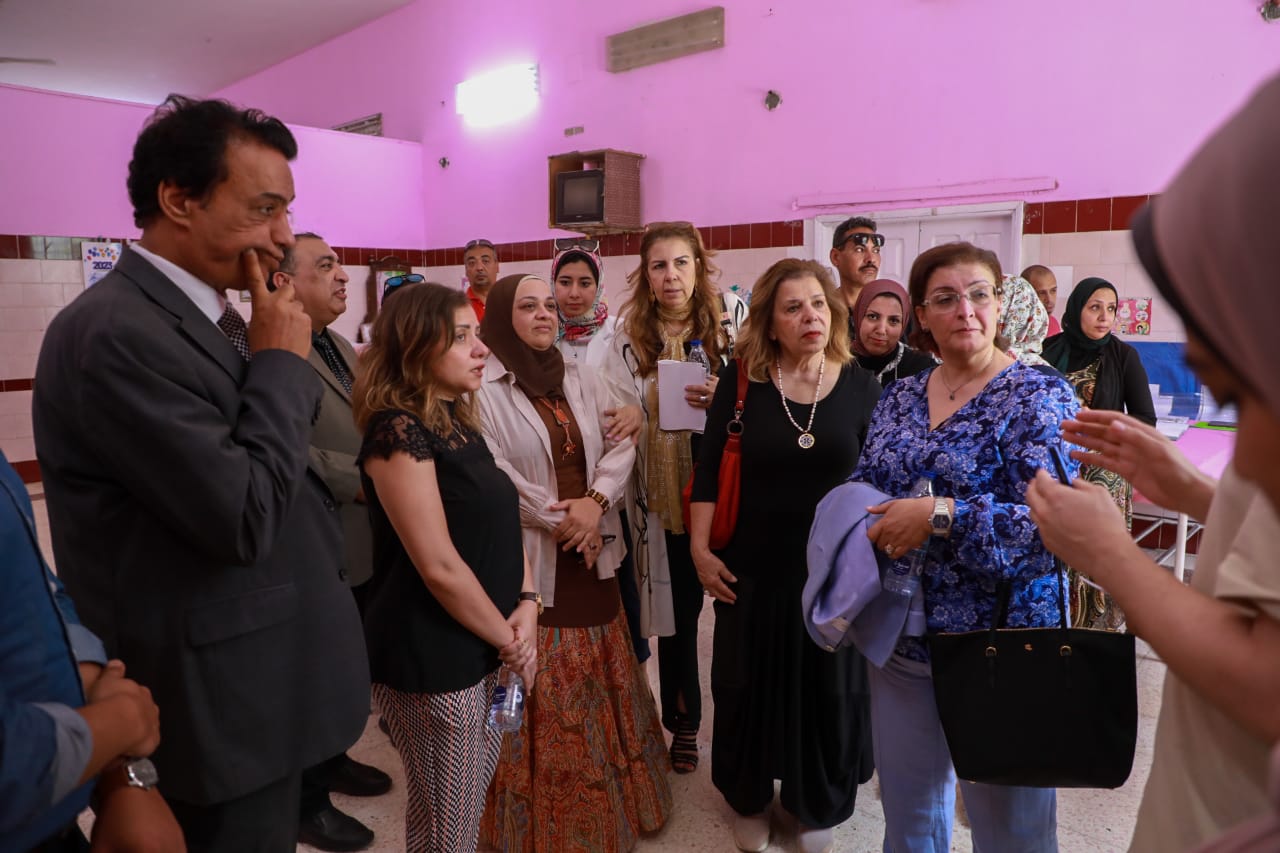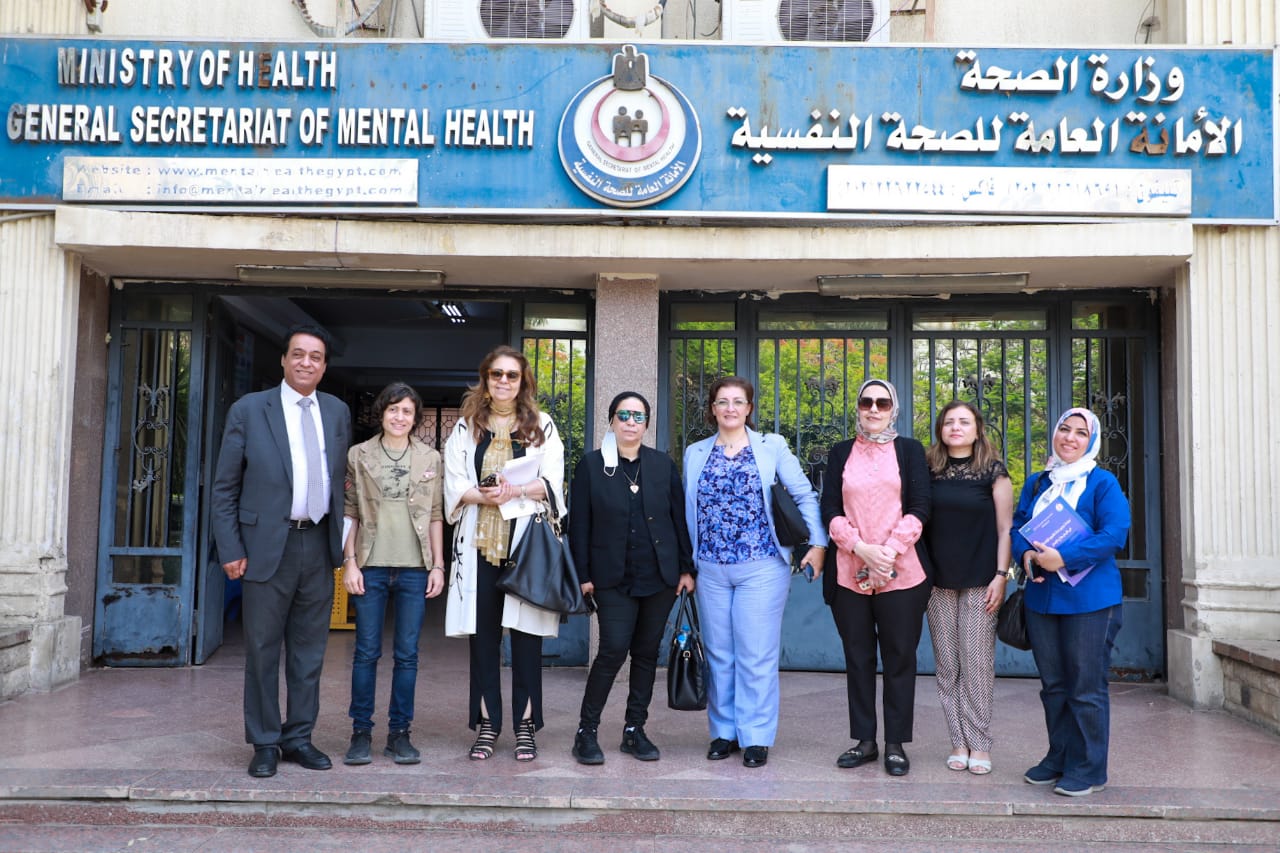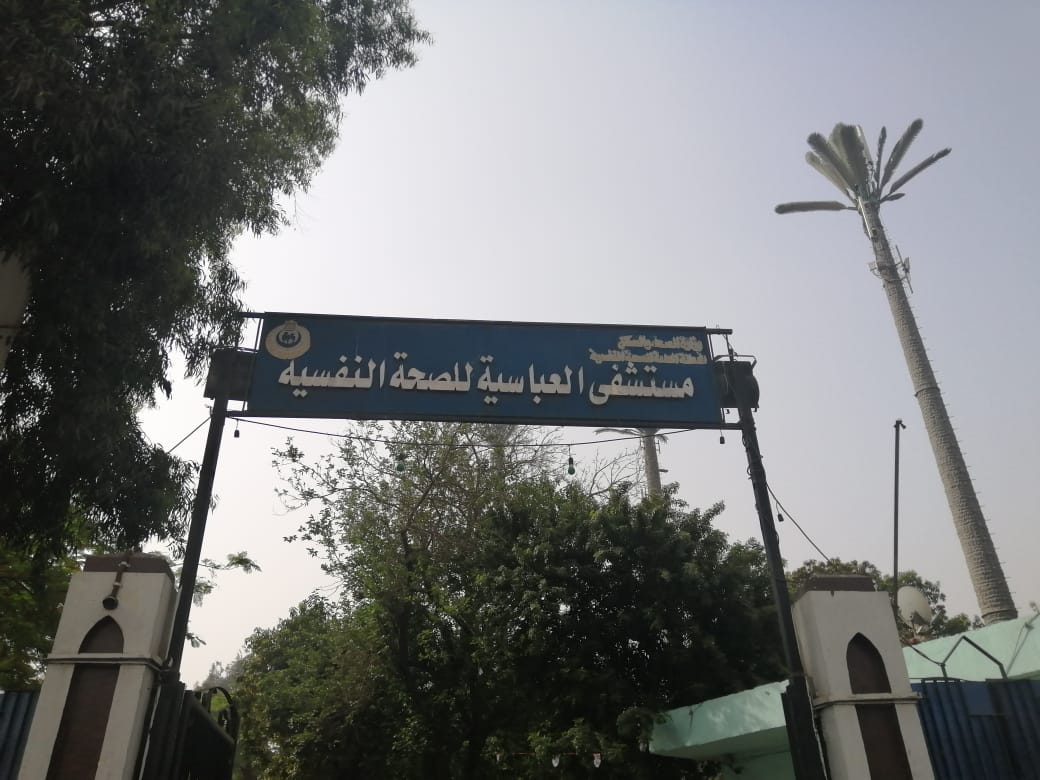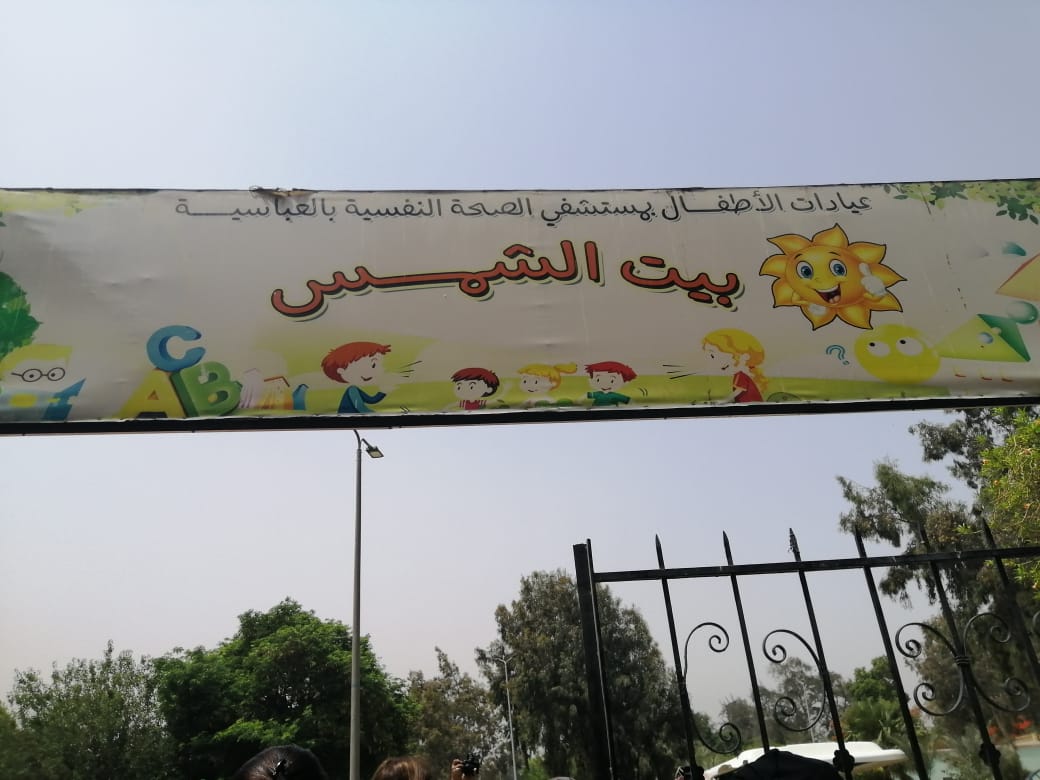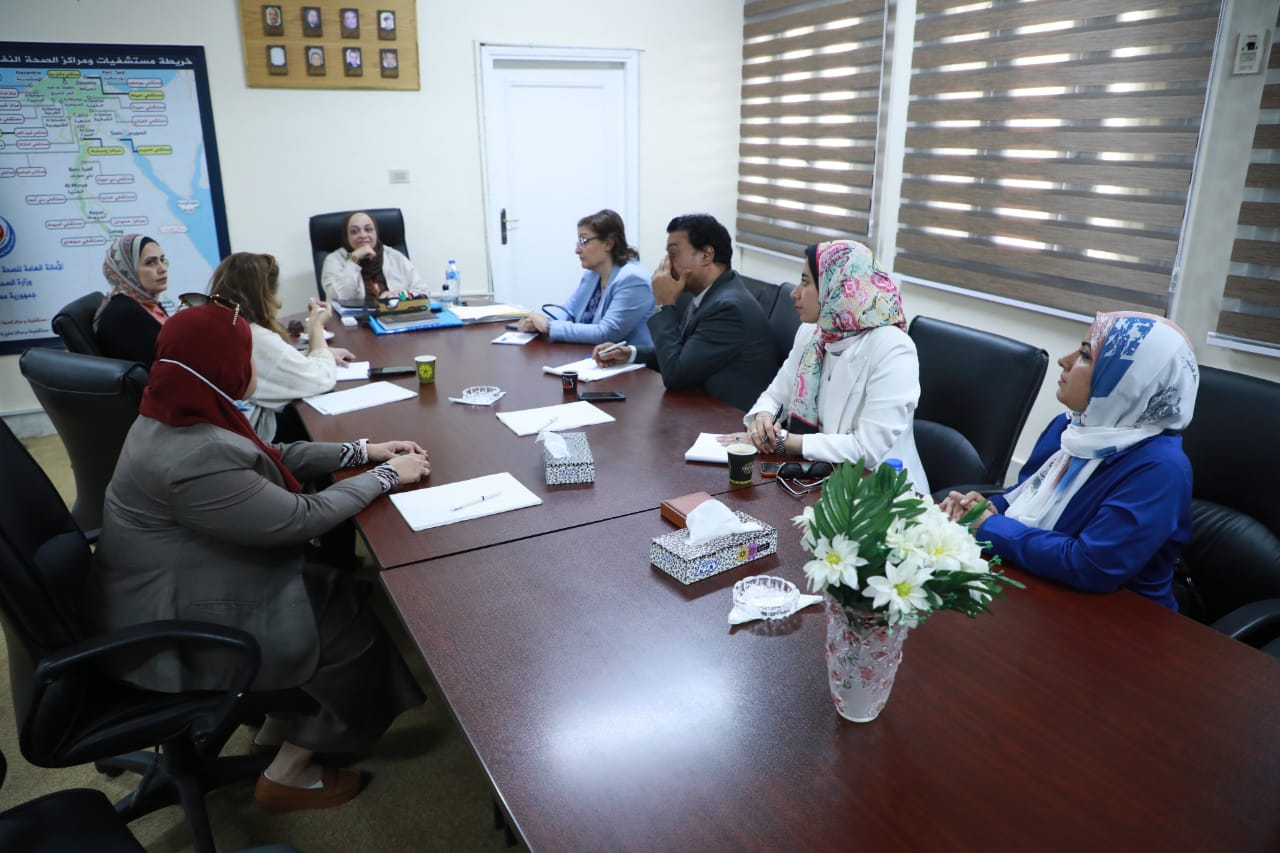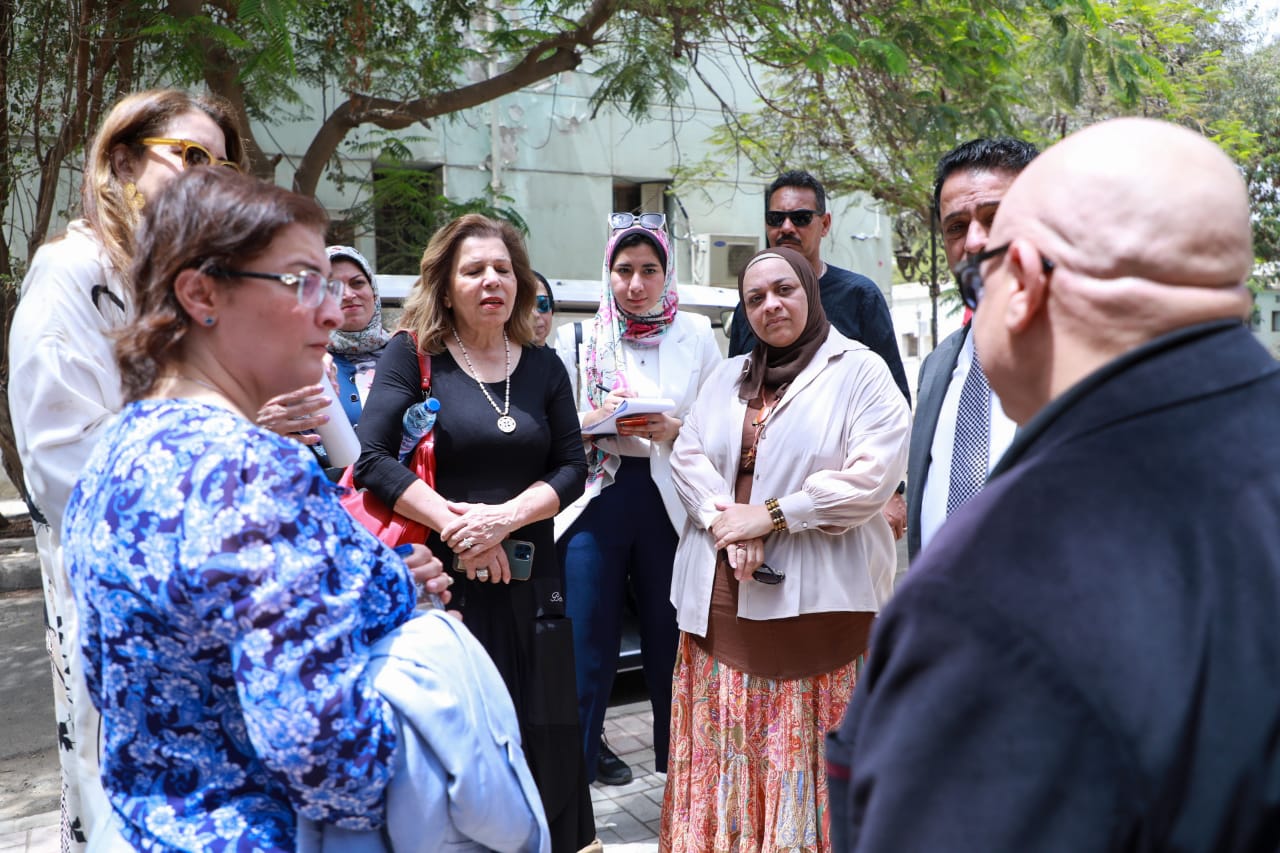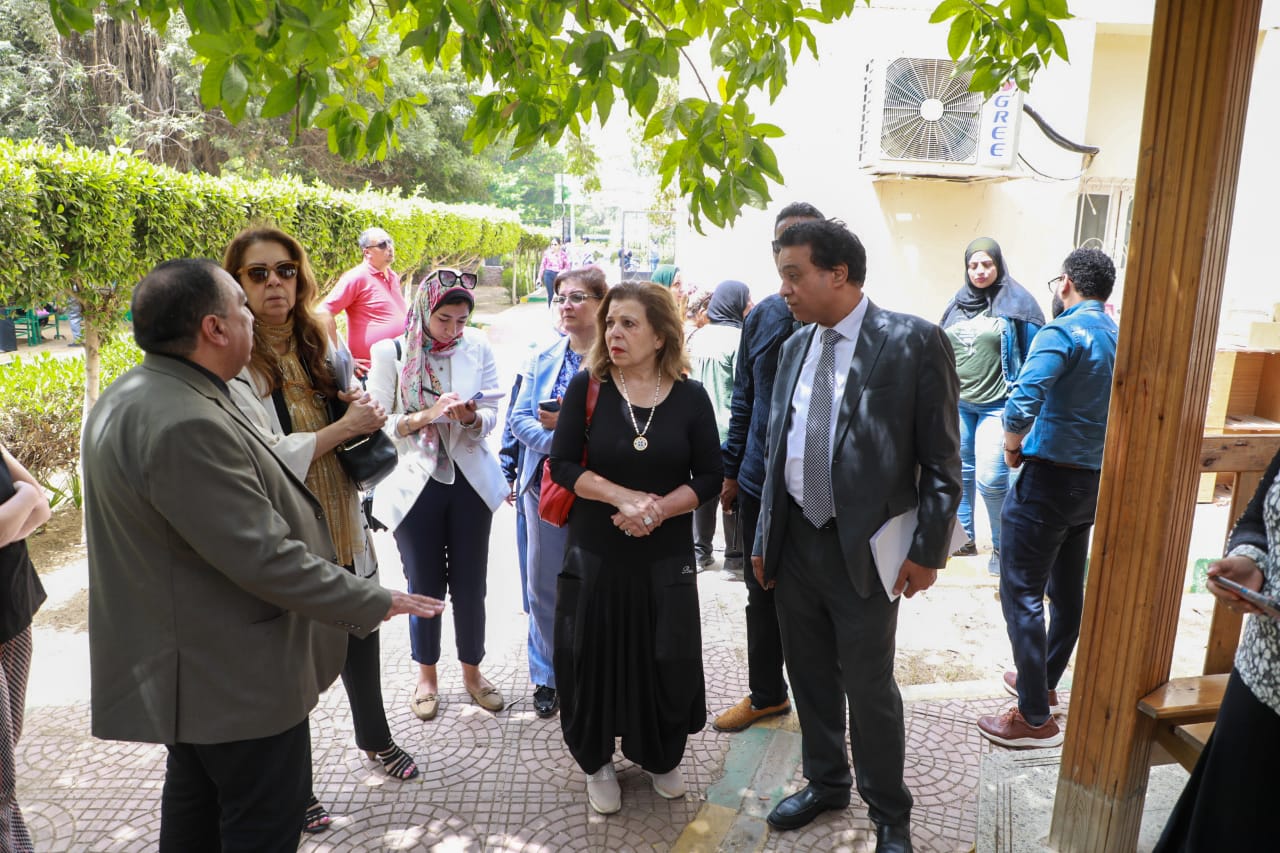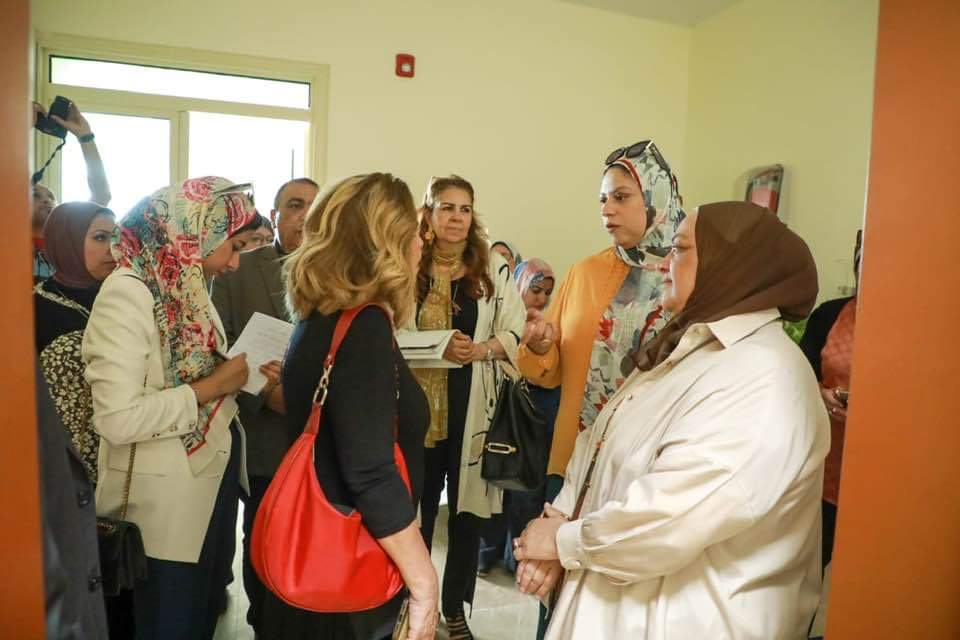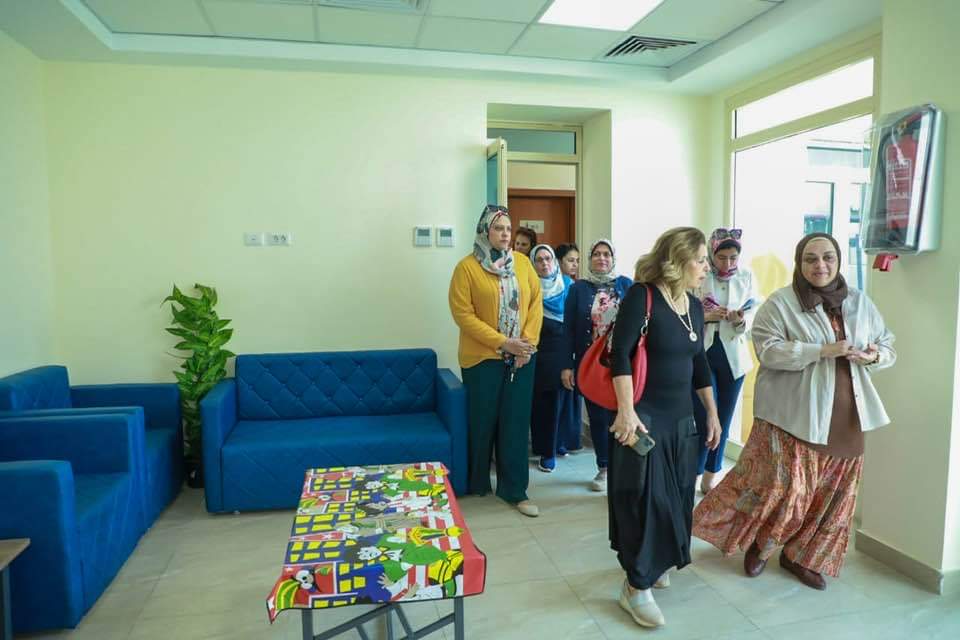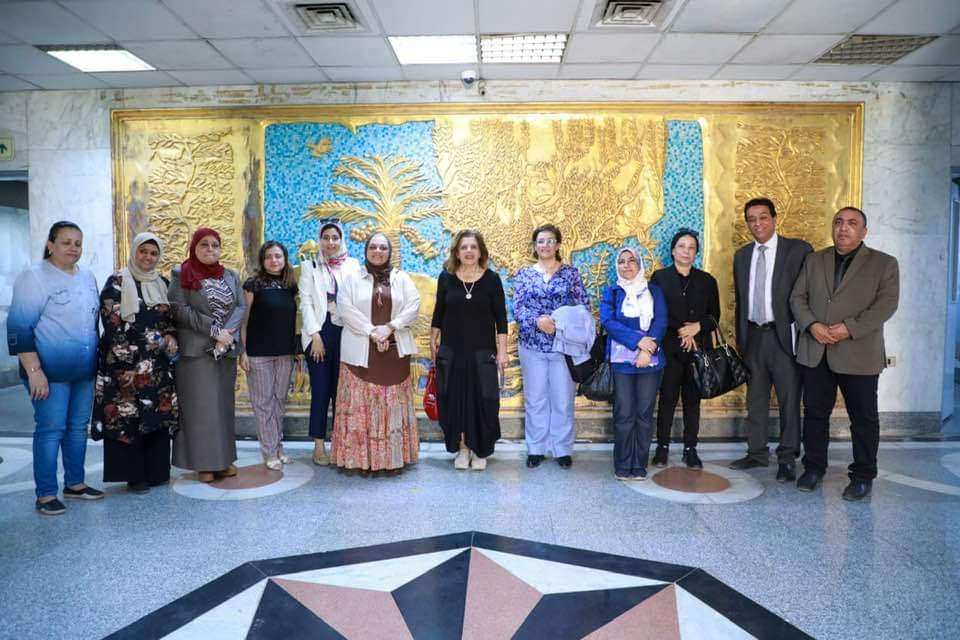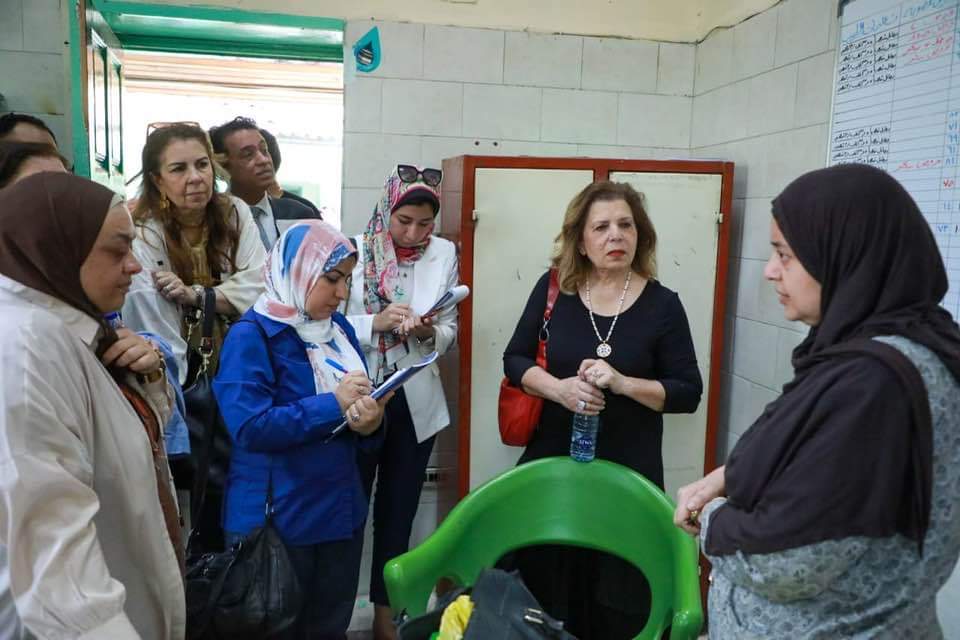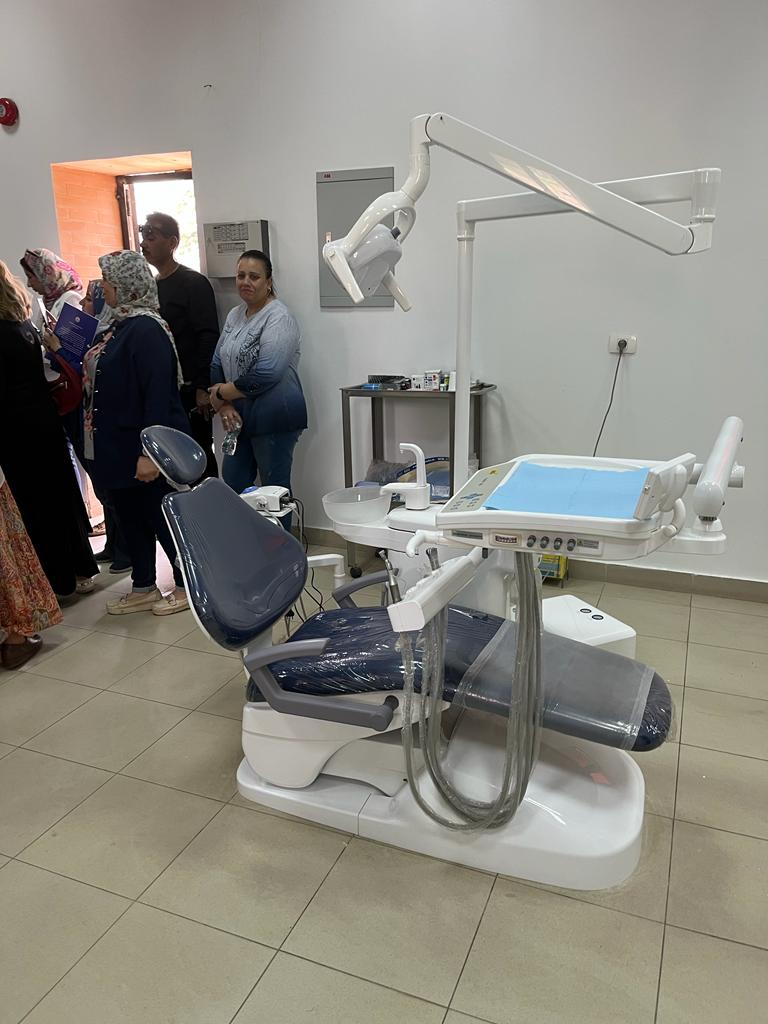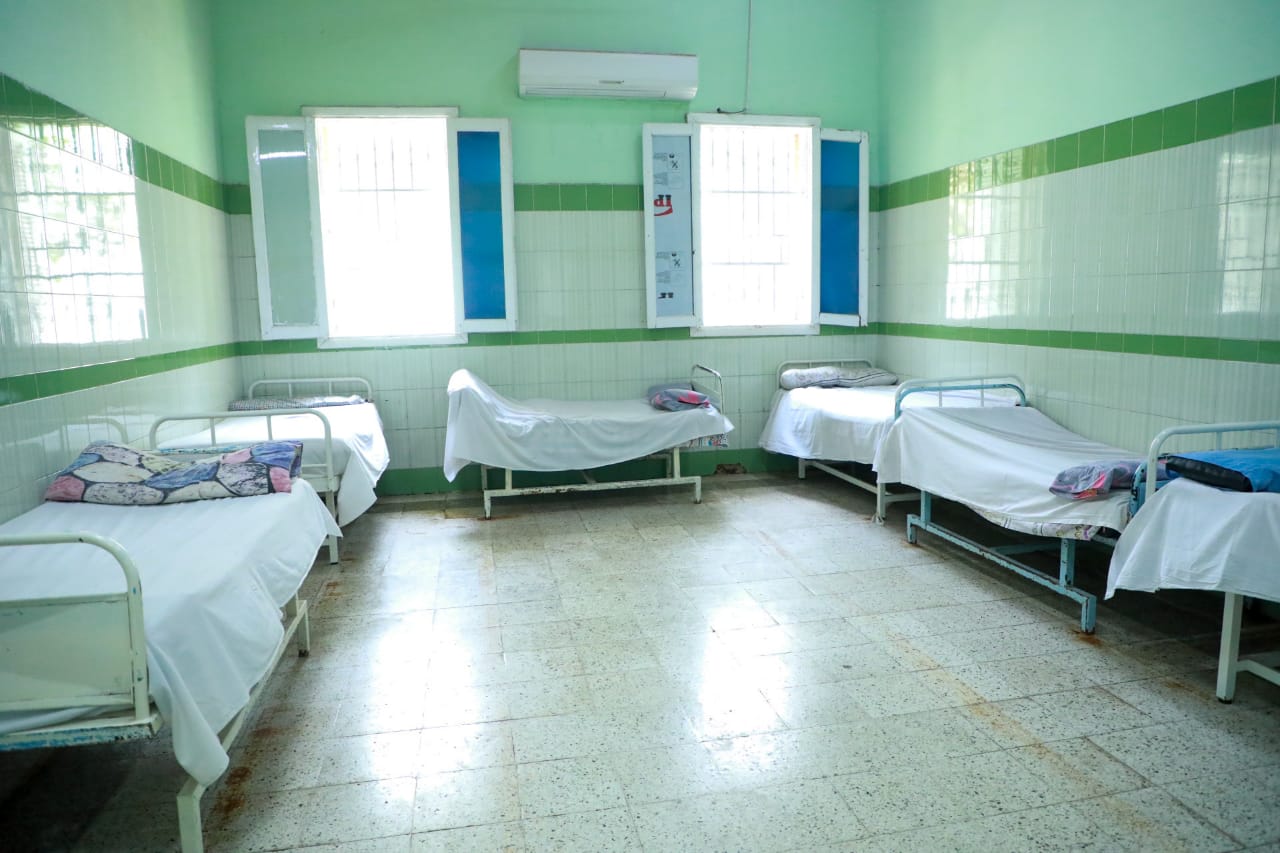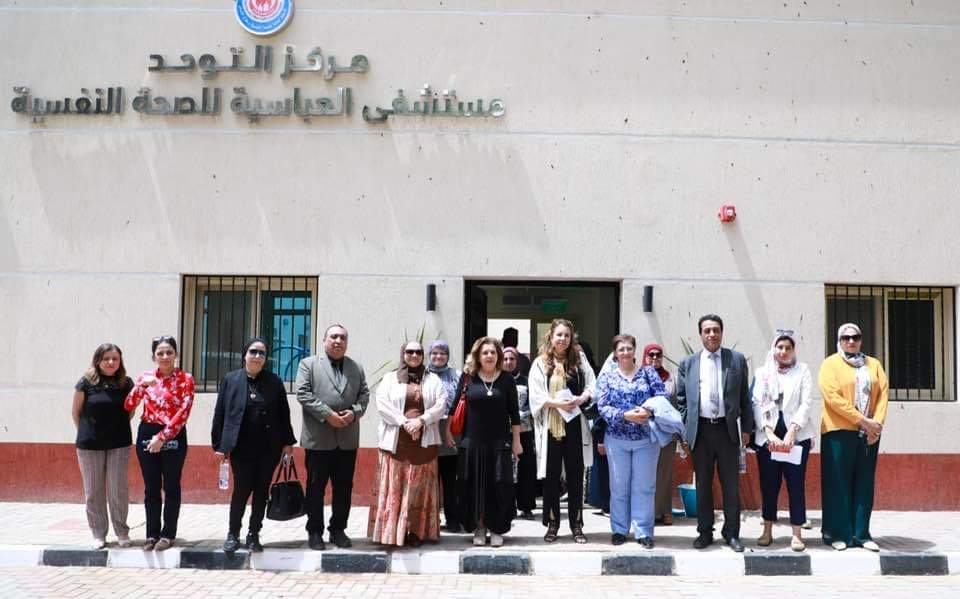A delegation of the National Council for Human Rights visits the Abbasiya Hospital for Mental Health and Addiction Treatment
With the aim of following up the development of the mental health sector and supporting the rights of mental patients, a delegation of the National Council for Human Rights (NCHR), headed by Ambassador Moushira Khattab, conducted an inspection tour of the Abbasiya Hospital for Mental Health and Addiction Treatment, on Wednesday, May 17, 2023.
Dr. Menen Abdel Maqsoud, Secretary General of the General Secretariat for Mental Health and Addiction Treatment, received NCHR delegation, which included the NCHR President, Dr. Wafa Benjamin, Secretary of the Social Rights Committee, Dr. Nevine Massad, Professor Rabha Fathi, Professor Abdel Gawad Ahmed, members of NCHR, and Professor Asmaa Fawzy from the NCHR General Secretariat, in the presence of Dr. Rania Zakaria, Director of Hospitals Department of the General Secretariat of Mental Health, and representatives of the concerned departments at the headquarters of the General Secretariat of Mental Health. During the meeting, efforts to develop the mental health and addiction treatment sector were shed, and a map of hospitals and mental health and addiction treatment centers was reviewed at the level of the Republic which operates according to quality standards.
During its inspection tour inside Abbasiya Hospital - which operates with a capacity of 1,200 beds, and is one of the largest mental health and addiction treatment hospitals in Egypt - the delegation visited a number of hospital departments to get acquainted with aspects of medical care and services provided to patients, and to talk with some sick inmates in the hospital to ensure that they receive treatment in its various forms. Rehabilitation programs for adult psychiatric patients were reviewed, in addition to programs for treating mental disorders for children and adolescents, such as anger management programs, group therapy for self-confidence, rehabilitation for children with autism, hyperactivity disorder, attention deficit, and other programs dedicated to treating mental disorders and different behavioral.
The patients expressed their satisfaction with the quality of the treatment programs provided, which lead to positive results during the treatment phase, and note the keenness to maintain the level of cleanliness and good ventilation of all wards and different departments, including drug addiction and smoking cessation sections. Recovered people especially praised the positive effect of the good treatment on the part of the medical teams.
NCHR recommends the need to work to increase the number of beds in mental health and addiction treatment hospitals of the General Secretariat, which amounts to six thousand beds nationwide to accommodate the growing need, and also to increase the number of medical teams qualified in this field, and to train and qualify psychologists other than doctor to do their part, and intensify cooperation with civil society organizations to support patients and implement rehabilitation activities.
NCHR affirms its full support for initiatives and programs concerned with mental health, instilling a culture of early detection of mental illness, eliminating the stigma attached to it in society, providing means of treatment and recovery from mental disorders, rehabilitation and integration into society, which contributes to improving the quality of life of citizens. NCHR also expresses its appreciation for the advancement and distinction of services provided to patients with autism and its intention to cooperate with the Ministry of Health to meet mental health needs, raise community awareness of the rights of people suffering from mental ill health, and raise families' awareness of their rights, especially women and the elderly.
NCHR continues to conduct inspection visits to mental health hospitals and addiction treatment centers in implementation of its plan of action to protect and promote human rights.





 English
English
 Arabic
Arabic
 French
French
